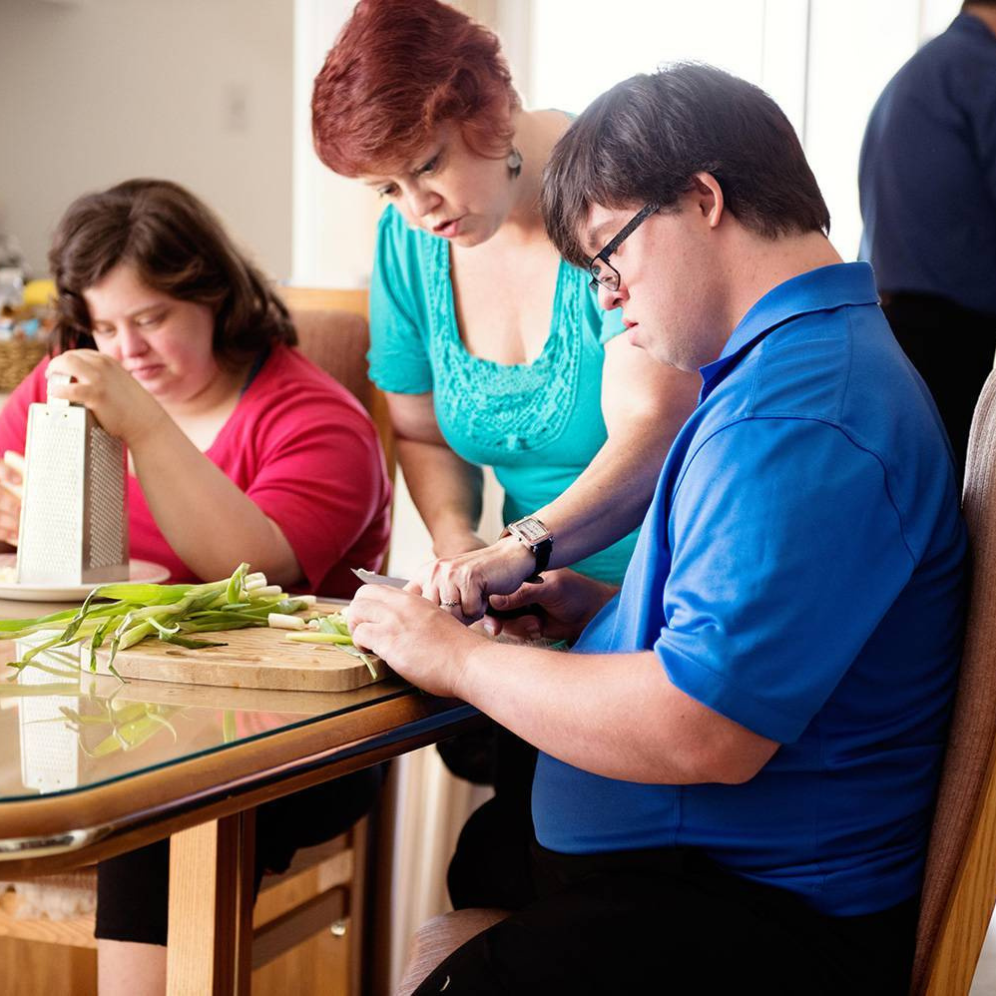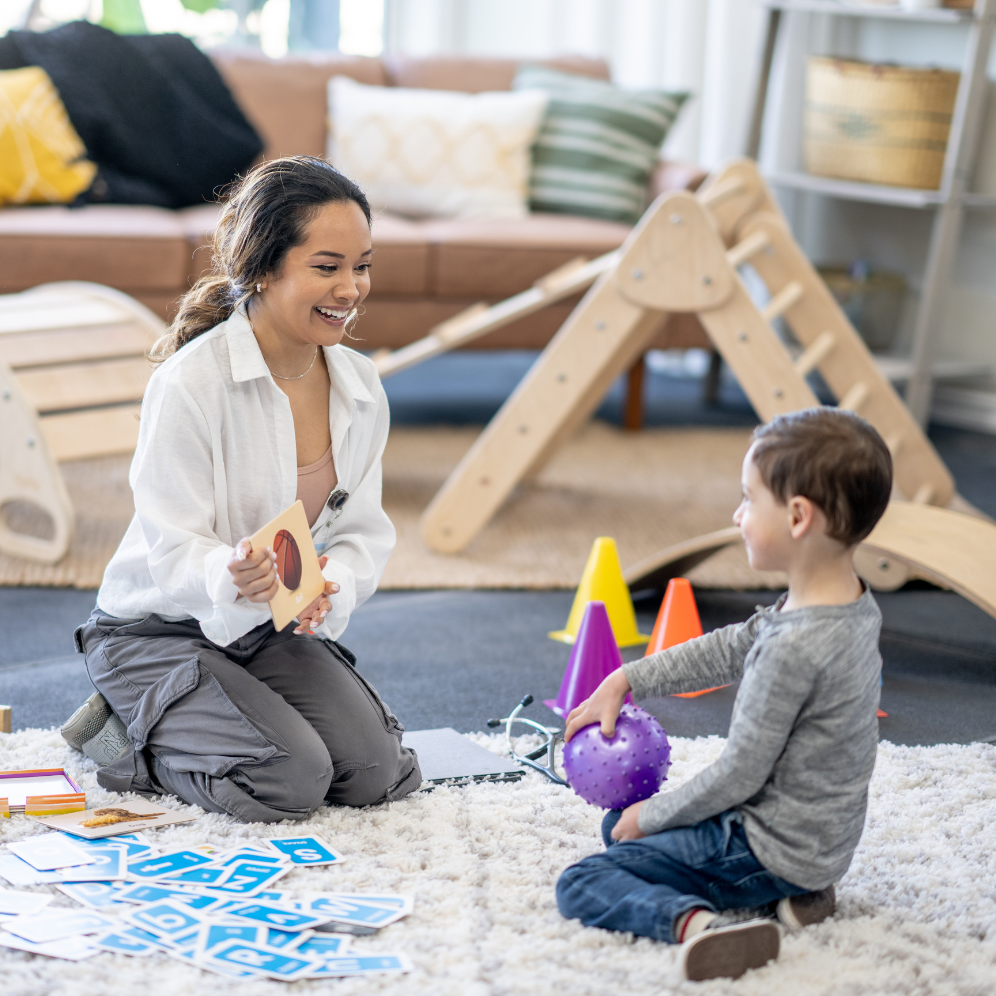Occupational Therapy

Occupational Therapy
Occupational therapy assists individuals across their lifespan to participate in the activities they want and need to complete through the therapeutic use of daily activities, also known as occupations. Our care team conducts thorough assessments to understand the unique strengths, challenges, and goals of each individual. Utilizing a holistic approach, our practitioners develop a custom treatment plan that promotes independence, enhances overall well-being, and maximizes quality of life for those in our care.

Adults With Developmental Disabilities
Occupational therapy for adults with developmental disabilities aims to help individuals improve their independence, functional skills, and overall quality of life. The specific interventions and approaches used in occupational therapy will depend on the individual’s unique needs, strengths, and goals. This can include:
- Assessment and Goal Setting
- Activities of Daily Living (ADLs)
- Fine and Gross Motor Skills
- Sensory Integration
- Social Skills and Communication
- Community Integration
- Vocational Training
- Cognitive Skills Training
- Independence in Home Management
- Adaptive Equipment and Assistive Technology
- Safety and Self-Care
- Emotional and Behavioral Regulation
- Recreational and Leisure Activities
- Family and Caregiver Education

Pediatric Occupational Therapy
Pediatric occupational therapists work with children of various ages, from infants to adolescents, who may have developmental, sensory, motor, or behavioral challenges. The goal of pediatric occupational therapy is to support children in reaching their fullest potential and promoting their overall well-being. The therapy sessions are designed to be engaging, play-based, and tailored to the child’s developmental level and interests. This can include:
- Family-Centered Approach
- Assessment and Individualized Goals
- Play-Based Intervention
- Fine Motor and Gross Motor Skills
- Sensory Integration
- Self-Care Skills
- Cognitive Skills
- Social Skills and Peer Interactions
- School Readiness
- Adaptive Equipment and Assistive Technology
- Behavioral Strategies
- Home and Community Integration
- Parent and Caregiver Education
- Collaboration with Other Professionals
